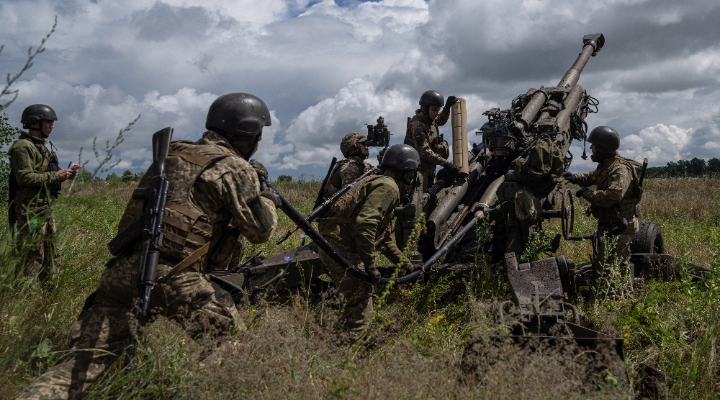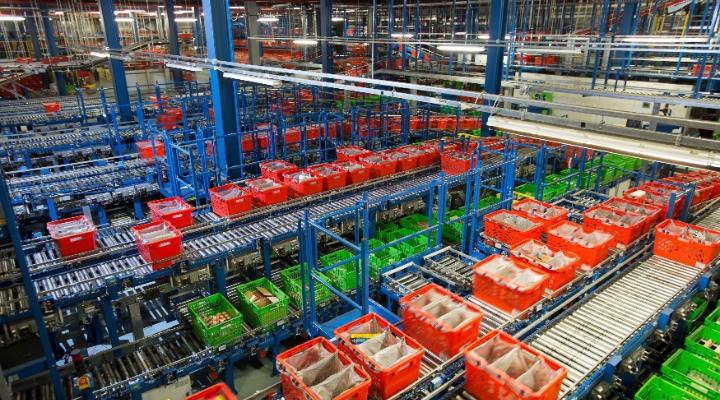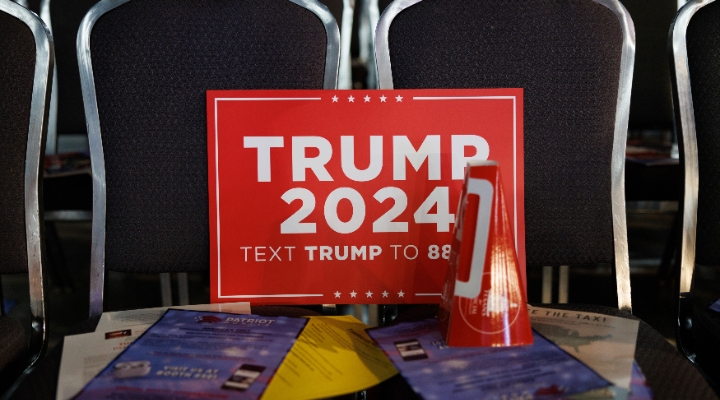
Just two weeks ago, NATO was celebrating its 75th anniversary.
Now, an assassination attempt, the selection of arch-isolationist JD Vance as Donald Trump's running mate, and the departure of Joe Biden from the US presidential race, all point to one thing: a rethink on defence in Europe.
It's long been predicted a second Trump term would jeopardise transatlantic security ties. Trump made no secret of his frustration with NATO partners during his first term. The addition of JD Vance, a former Marine Corps correspondent who says he is sick of US politicians bankrolling European security, somewhat ups the ante.
Investors with a nose for this unfolding narrative would now be wise to keep their eye on the companies that supply NATO with their weapons, ammunition, and modern technology.
For Loredana Muharremi, Morningstar equity research analyst on aerospace and defence, the possible re-election of Trump means European countries may have to dig deeper for their contributions to Ukraine's war effort, in addition to ensuring NATO members meet their pledged defence spending levels of 2% of GDP.
"Given the increased support needed for Ukraine if there is a pullout of US support, we expect that the collaboration with the UK will not only be positive for immediate procurement, but also for long term development programmes," she says.
BAE Systems Shares: Bad Month, Good Prospects
The company whose shares stands to benefit most consistently from this situation is Wide-Moat BAE Systems (BA.), Muharremi says. Over the last month, the FTSE 100 company's stock is down 6%, but its shares could now rally once more on higher orders for its fighter jets, naval vessels, armoured vehicles, and communications technology.
"It has already established a local direct presence in Ukraine including providing repair and maintenance services for artillery systems and other military equipment donated by the UK and other NATO allies, which position it strategically in case of a ramp up in military aid," Muharremi says.
"But the most important point is the possibility of multi-year contracts and joint development projects with European countries aimed at enhancing European military readiness and self-reliance."
Key Morningstar Metrics For BAE Systems
• Morningstar Fair Value Estimate: £14.90
• Morningstar Star Rating: ★★★★
• Morningstar Economic Moat Rating: Wide
• Morningstar Uncertainty Rating: Medium
Which Funds Are Backing BAE Systems?
Guy Anderson, managing director and portfolio manager of the Morningstar Bronze-Rated JP Morgan UK Equity Growth fund, said BAE is already benefiting from heightened tensions.
"BAE has clearly had a very good order intake. They have had a very strong book to bill, and their revenue has been growing," he told Morningstar in an interview.
"Alongside revenue they have had good operating margins and good cash conversion. They have also been returning some of that cash to shareholders by putting in place a share buyback plan."
In February, BAE Systems, which makes up 3.16% of Anderson's fund, announced that its pre-tax profits had climbed 17% to £2.33 billion in 2023 from £1.99 billion in 2022.
Its revenue grew 8.6% to £23.08 billion from £21.26 billion, and its order book rose by 19% to £58.0 billion from £48.9 billion, in part driven by production and maintenance supply of US-purchased M777s howitzers (pictured above), which have been deployed extensively in Ukraine and have received increased interest from other foreign militaries.
The strong results led the company to increase its dividend payments.
"We are in a position where NATO defence spending is going to increase over the coming years, and even if you think about BAE, short cycle work is only about 10% of their group revenue," Anderson says.
"NATO spend takes multiple years to work through the system and come into revenue. So, when [BAE Systems] looks at what their outlook is for the next five or 10 years, they see this strong uplift in order momentum."
BAE will report its Q2 earnings for 2024 on 1 August.
QinetiQ Shares and The Smart Warfare Win
Other fund managers are also backing UK-listed defence companies. David Stevenson, fund manager of the Morningstar Silver-Rated WS Amati UK Listed Smaller Companies fund, has been a long-term holder of FTSE 250 defence company QinetiQ, which has offices in Bristol, Farnborough, and London.
The defence stock, which is the fund's top holding at 4.25% of the portfolio, is making waves as prohibitive heavy equipment costs boost investments in high-tech and cyber assets.
"Weapons and equipment platforms are almost becoming unaffordable," Stevenson told Morningstar.
"That’s why we see it as a consolidating sector. Defence firms are either collaborating, merging, or being taken over. Government budgets are struggling with what they have to spend on weapons, vehicles, ships and tanks.
"That's led to a switch to cleverer warfare – essentially electronic warfare. That is why we are focused on QinetiQ. QinetiQ focuses on test and evaluation in cyber, on autonomous warfare, on laser systems. All of these areas are where we think budgets will shift to."
The business, which was originally spun out of the UK's own Ministry of Defence, is a holding that Anderson also backs. He says its strong order intake over the past three years has led to double-digit revenue growth per annum over that same period.
He also points to the company's globally-diversified operations bases: in the UK, North America, and Australia, which the business calls its three "home markets".
On that note, QinetiQ is set to benefit from the AUKUS agreement, which saw the UK, the US and Australia join forces in a trilateral Indo-Pacific security agreement based on the provision of nuclear submarines.
Vishal Bhatia, senior fund manager of the Bronze-Rated JOHCM UK Growth fund is also bullish about the company.
"The backdrop is a meaningful positive for QinetiQ, which has the skills and experience in the next generation technology areas that can hopefully make the world a slightly safer place," he said.
"The company demonstrated its strong strategic positioning by unveiling a better than expected outlook earlier in the year, and a substantial pipeline for its high technology service suite. The management has optimised its capital allocation policy, which in turn is creating greater optionality for investment in growth and further shareholder returns."
QinetiQ Group recently said its first quarter had been positive, with revenue under contract increasing to 73% from 64%.
The firm's chief executive Steve Wadey also said the business expects high single-digit organic revenue growth, while announcing £32 million of a £100 million share buyback programme will be complete by the end of the first quarter.

























